Today, treating urinary infections with antibiotics is challenging because the bacteria are becoming increasingly resistant to them. Luckily, there are a few things that you can do to prevent UTI.

This post is part 2 of urinary tract infection. If you haven't read part 1, I highly recommend you start there.
Can you prevent UTI?
Yes, even if it's not guaranteed that you'll never catch the infection, prevention is always better.
Here are some strategies you can adopt to minimize the risk of UTI.
- Stay hydrated: Drinking plenty of water helps maintain optimal urinary tract function by promoting frequent urination and flushing out bacteria from the urinary system. Aim to drink at least 8 glasses of water per day, or more if needed, based on your activity level and climate.
- Practice good hygiene: Proper hygiene can help prevent the introduction of bacteria into the urinary tract. This includes wiping from front to back after using the toilet, washing the genital area with water regularly, and avoiding the use of harsh or scented products that may irritate the urethra.
- Urinate after intercourse: Emptying the bladder after sexual activity can help flush out bacteria that may have been introduced into the urinary tract during intercourse. Urinating after sex can reduce the risk of bacterial colonization and lower the likelihood of developing a UTI.
- Avoid holding urine: Holding urine for prolonged periods can allow bacteria to multiply in the bladder, increasing the risk of infection. Empty your bladder regularly and avoid delaying bathroom trips when you feel the urge to urinate.
- Practice safe sex: Using condoms during sexual activity can help reduce the risk of UTIs by preventing the exchange of bacteria between sexual partners. Additionally, maintaining good genital hygiene before and after sex can further minimize the risk of bacterial transmission.
- Check your diet: Avoiding potentially irritating substances such as caffeine, alcohol, and acidic foods or beverages may help prevent irritation of the bladder and urethra, reducing the risk of UTI.
- Clothing: Wearing loose-fitting, breathable underwear and clothing can promote air circulation and reduce moisture buildup in the genital area, creating a less favorable environment for bacterial growth.
- Consider probiotic supplementation: Probiotics containing specific strains of beneficial bacteria may help maintain a healthy balance of microorganisms in the gut and urogenital tract, reducing the risk of UTI. Consult your healthcare professional to determine which probiotic supplementation is appropriate for you.
Why you should stay hydrated to prevent UTI
- Increased urination: Drinking plenty of healthy fluids increases urine production, which leads to more frequent urination. Frequent urination helps flush out bacteria from the urinary tract before they can multiply and cause an infection.
- Dilution of urine: Adequate hydration results in a higher volume of urine, which helps dilute the concentration of bacteria and other potentially harmful substances in the urine. Concentrated urine provides an ideal environment for bacteria to thrive and multiply, increasing the risk of UTIs.
- To maintain a healthy urinary tract: Proper hydration supports the overall health of the urinary tract by ensuring adequate blood flow to the kidneys and bladder. This helps maintain the integrity of the urinary tract lining, making it more resistant to bacterial adherence and colonization.
- Enhanced immune function: Adequate hydration supports immune function, which is essential for preventing and fighting off infections, including UTIs. Hydration helps ensure the optimal function of the immune system's cells and molecules involved in defending against bacterial invaders.
Diet and UTI
Some people are more prone to urinary tract infections than others, and diet might play a role.
- A diet high in fruits and vegetables is protective against UTI.
- Consumption of soft drinks increases the risk of UTI.
- A diet high in polyphenols, such as those found in cranberries, tea, coffee, chocolate, and berries, can help prevent UTIs. Bacteria in your gut break these polyphenols into metabolites that the immune system uses to bind iron and keep it away from the bacteria in case of UTI.
Increase your intake of probiotics
Probiotics are live microorganisms that confer health benefits when consumed in adequate amounts.
While research on the use of probiotics for preventing or treating urinary tract infections is ongoing, evidence suggests that consuming certain probiotic strains may help support urinary tract health and reduce the risk of UTIs.
Here's how probiotics may prevent or help with UTIs:
- Restoring healthy microbial balance: Probiotics can help restore and maintain a healthy balance of beneficial bacteria in the gastrointestinal and urogenital tracts. Doing so may help prevent the overgrowth of harmful bacteria, including those that can cause UTIs.
- Restriction for growth: Some probiotic strains produce substances that inhibit the growth and adherence of uropathogenic bacteria, such as Escherichia coli (E. coli).
- Enhancing immune function: Probiotics have been shown to modulate the immune system, helping to strengthen the body's natural defenses against infections. By promoting a balanced immune response, probiotics may reduce susceptibility to UTIs and contribute to overall urinary tract health.
- Maintaining urinary tract pH: Some probiotic strains produce lactic acid and other organic acids that can help maintain an acidic environment in the urinary tract. A lower urinary tract pH inhibits the growth of specific pathogens, making it less favorable for UTI-causing bacteria to thrive.
- Preventing antibiotic-associated disruption: Antibiotic treatment for UTIs can disrupt the natural balance of bacteria in the gut and urinary tract, increasing the risk of recurrent UTIs. Probiotics help restore this balance and prevent the overgrowth of opportunistic pathogens following antibiotic therapy.
While antibiotics remain the cornerstone of UTI management, preventive measures such as a healthy diet, proper hygiene, adequate hydration, and lifestyle modifications are crucial in reducing the incidence of the infection.





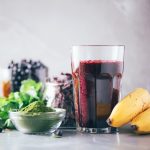
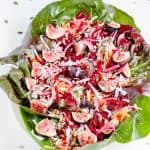

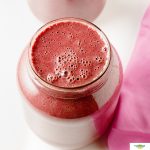

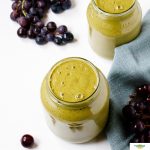


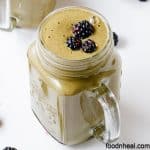




Comments
No Comments